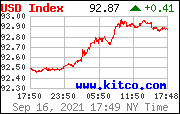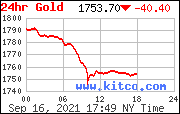- Robert Peston
- 29 Sep 08, 02:30 PM
Since the onset of the credit crunch in August of last year, there have been bad days, worse days and today.
What a horrible coincidence of accidents and emergency resuscitations we’ve seen.
Here they are, in no particular order.
1) The collapse and nationalisation of Bradford & Bingley, set to cost our cash-strapped banks at least £9bn over the coming years (see my notes of this morning).
2) The injection into Fortis, a continental bank rather bigger on one measure than the Belgian economy, of £9bn of Benelux taxpayers’ cash.
3) The takeover, with US taxpayer support, of Wachovia - the huge battered US retail bank - by Citigroup, a bank which has had capital-deficiency problems of its own.
4) A massive penny dropping on Wall Street, the recognition that Congress will extract back from financial firms in a few years the $700bn to be injected into banks to keep them alive.
It’s the day when no-one could be under any illusion about the costs of rebuilding our structurally impaired financial system.
That cost will fall directly on taxpayers and on banks.
Indirectly it will hurt businesses - some of which are already being starved of vital capital by banks’ inability to lend.
And for millions of people in the US and Europe, there’s the double
blow of an erosion in the value of their wealth (through declining
property prices and the falling value of long term savings in pension
funds) and of an increased risk of redundancy.
Or to put it another way, for most of us, there’s little in the way of shelter from the storm.
Don’t forget that last week we had a massive injection of one-week
loans into the banking system by the Federal Reserve and Europe’s
troika of leading central banks. And in the UK, the Bank of England
auctioned £40bn of three-month loans.
That was supposed to calm nerves and reduce the price of money for banks.
But the cost for banks of borrowing from each for three months in sterling, euros or dollars has risen again.
Banks are as worried as they’ve ever been about the
credit-worthiness of their peers. Trust and confidence are almost
extinct qualities.
Share prices too are falling hard - which in part is a belated
recognition that the crisis in money markets will have an impact on the
prospects for most companies.
If economic growth was going to be slow before the events of the past three weeks, it’s going to be a lot worse now.
And if you wish to know which economies are perceived by global
investors to be most flawed and vulnerable, you could do worse than
look at the price of insuring sovereign debt in the credit default swap market.
Those CDS prices tell you that Austria, Belgium, Denmark, Finland,
France, Germany, Sweden, and the Netherlands are all perceived to be
more credit-worthy - to be in a better position to service their
national debt - than either the US or the UK.
PS. Silly me. In my list of financial firms in
receipt of massive first aid, I forgot to mention Germany’s Hypo Real
Estate, the commercial property lender, which has received a whopping
£28bn in credit guarantees from the German government in collaboration
with a consortium of banks.
Oh, and Iceland’s third largest bank, Glitnir, has been nationalised.


